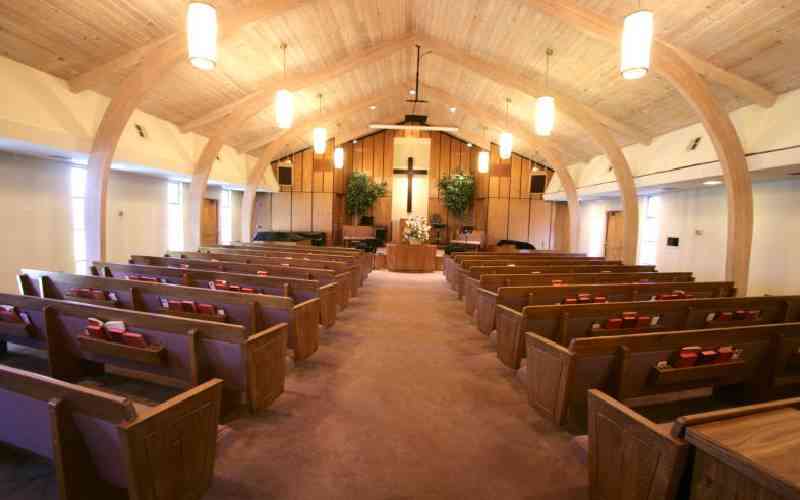When Parliament attempts to step into the pulpit, democracy itself is imperilled. The Computer Misuse and Cybercrime (Amendment) Bill, 2024, is not about safeguarding Kenyans from extremism, it is a calculated attempt to muzzle the church, stifle conscience, and arrogate to the State the divine authority over faith. Cloaked in the rhetoric of “public order” and “safety,” this Bill is a Trojan horse, designed to dictate sermons and silence pastors.
At its heart lies a dangerous phrase: “extreme religious and cultic practices.” It sounds noble, after all, who would want cults? But the term is vague, undefined, and weaponised. It hands unrestrained discretion to the state to decide what qualifies as “extreme.” Today it may be fringe sects, tomorrow it may be mainstream churches whose teachings challenge corruption, immorality, or tyranny. In truth, it is not cults the State fears, it is conviction.
Even the Bible acknowledges the right and the duty, to rebuke falsehood. In Matthew 4:27–28, we see that light must shine in darkness, a call to proclaim truth boldly, regardless of opposition. Likewise, in Acts 4:19, when Peter and John were commanded by authorities to keep silent about Christ, they responded: “Which is right in God’s eyes: To listen to you, or to Him? You be the judges!” This is not only a spiritual principle but also a constitutional one. No earthly power has the authority to silence the proclamation of faith or dictate the content of belief.
Follow The Standard
channel
on WhatsApp
If the apostles could not submit to state-imposed censorship two millennia ago, why should Kenyan pastors in 2025 bow to the dictates of a committee in Nairobi? Faith that bends to the whims of Parliament ceases to be faith at all. Let us be plain, the Shakahola tragedy was a horror. Hundreds died because of deception and abuse by a man masquerading as a preacher. But the law already provides for dealing with such crimes, that is murder, fraud, incitement, and terrorism are all punishable under existing statutes. The Penal Code, the Prevention of Terrorism Act, and numerous other frameworks are adequate. The problem was not the absence of laws, but the failure of enforcement.
To invoke Shakahola as justification for sweeping State control over all churches is both cynical and opportunistic. It is akin to shutting down all media houses because one journalist spread lies, or outlawing political parties because one politician was corrupt. Collective punishment is not justice; it is tyranny. Article 32 guarantees freedom of conscience, religion, belief, and opinion, including the right to manifest faith publicly or privately. Article 33 protects freedom of expression. Article 24 prohibits arbitrary limitations of rights except under strict conditions of necessity and proportionality. This Bill fails all tests.
By allowing an executive committee to block websites and censor sermons under the guise of stopping “extreme” practices, it obliterates the principle of separation of powers. It bypasses the Judiciary, collapsing investigative, prosecutorial, and adjudicative functions into one unaccountable arm of government. Even worse, the Bill’s Memorandum of Objects and Reasons falsely claims it “does not limit rights and freedoms.” This duplicity betrays its true intent.
The State knows it is restricting freedoms, but seeks to camouflage it in bureaucratic language. Make no mistake, the long-term target of this Bill is not obscure sects hiding in forests. It is the vibrant, vocal church in Kenya that dares to rebuke corruption, sexual immorality, political arrogance, and state overreach. When pastors preach against sin and injustice, those sermons can easily be branded “extreme.” When churches denounce oppressive governance, their websites can be blacklisted. When believers quote the Bible to defend truth, they risk being silenced under this law.
This is why Matthew 4:27–28 and Acts 4:19 are so profoundly relevant. The Bible itself anticipates a clash between divine mandate and human decrees. The Church is commanded to speak truth to power, even when power threatens. To rebuke sin, even when rulers demand silence. To shine light, even when governments prefer darkness. A Bill that criminalises this calling is not only unconstitutional, it is ungodly.
Today, Parliament says it wants to protect Kenyans from cults. Tomorrow, the same powers can be extended to silence political dissent, to censor journalists, to block civic organisations. The pulpit may be the first victim, but it will not be the last. Kenya’s history is littered with reminders of what unchecked state power can do. The framers of the Constitution had witnessed this first-hand, which is why they entrenched rights so deeply, making them trumps even against majority will. To now watch Parliament casually attempt to claw them back is to betray that democratic covenant.
This Bill deserves not polite amendments or cautious critique, it deserves outright rejection. To allow it to pass would be to hand over the keys of the pulpit to the State, to allow Caesar to rewrite Scripture, to permit government to decide what can be preached on sermons.
Kenya must choose. Will we be a nation where Parliament presumes to be the final arbitrater of faith? Or will we remain a republic that recognises the sacred boundary between Caesar and God? As Acts 4:19 reminds us, when government commands silence against truth, the only righteous response is defiance: “Which is right in God’s eyes—to listen to you, or to Him?” The answer is clear. No Parliament, no agency, no amendment has authority over the pulpit.
Follow The Standard
channel
on WhatsApp
By Ndong Evance


